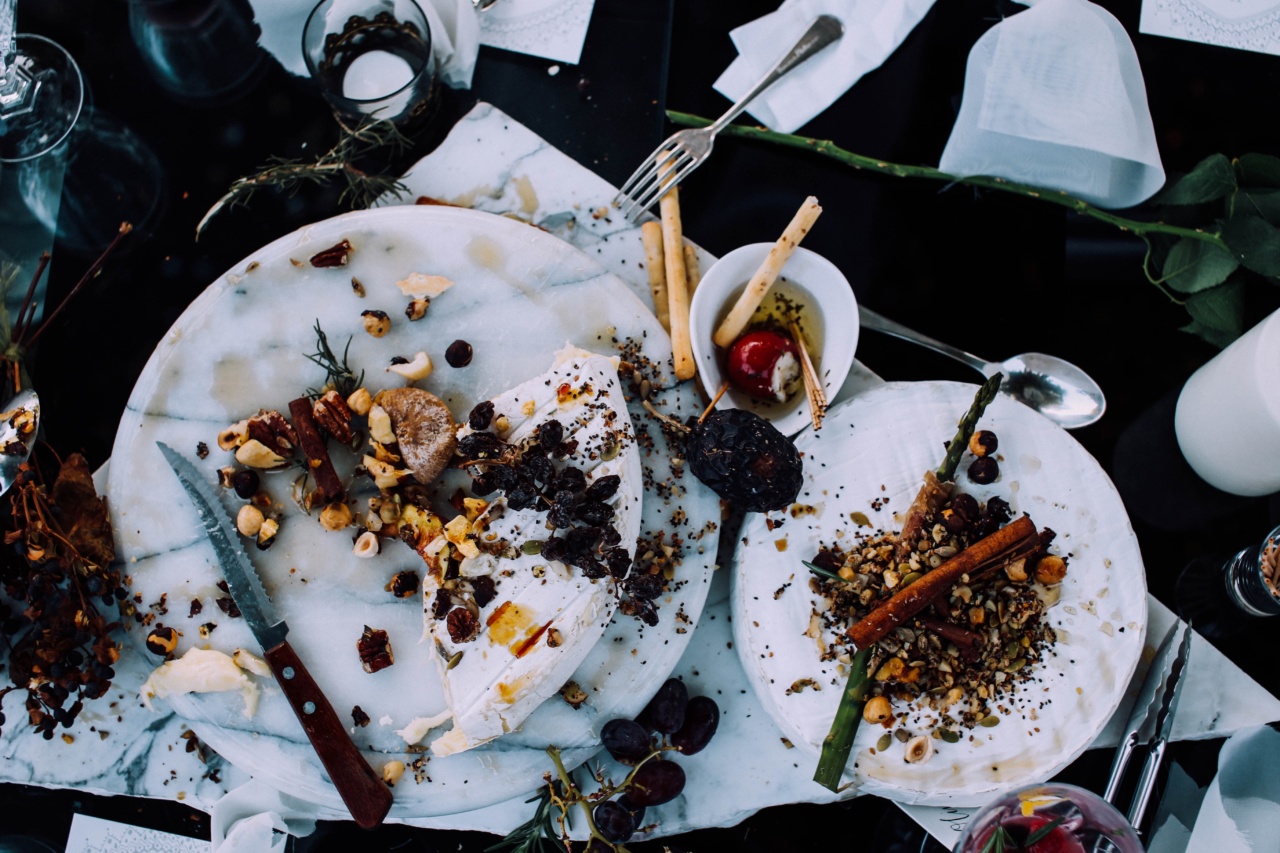A Caesarean section or c-section is a surgical procedure that involves the delivery of a baby through incisions in the abdomen and uterus.
It is a common alternative to vaginal delivery when vaginal delivery poses a significant risk to the health of the mother or the baby. After a C-section, it is crucial to follow a healthy diet to promote healing and recovery. However, certain foods can slow down the healing process or cause complications. Here are ten foods to avoid after a c-section:.
1. Spicy Foods
Spicy foods may cause heartburn, acid reflux, and stomach discomfort, which can be uncomfortable after surgery. These foods can also irritate the stomach lining and cause inflammation, which can slow down the healing process.
It is best to avoid spicy foods for the first few weeks after a c-section to prevent any digestive issues.
2. Gas-Producing Foods
Gas-producing foods like beans, onions, broccoli, cabbage, and cauliflower can cause bloating, gas, and discomfort after surgery. These foods can also cause gastrointestinal issues like constipation, diarrhea, and abdominal cramps.
It is best to avoid gas-producing foods for the first few weeks after a c-section to prevent any digestive issues and promote healing.
3. Citrus Fruits
Citrus fruits like oranges, lemons, and grapefruits are high in vitamin C, which is essential for healing after surgery. However, these fruits are also highly acidic, which can cause heartburn and acid reflux.
It is best to consume citrus fruits in moderation or avoid them for the first few weeks after a c-section to prevent any stomach discomfort.
4. Caffeine
Caffeine can cause dehydration, which can slow down the healing process after surgery. Caffeine can also cause jitters, anxiety, and restlessness, which can interfere with sleep and rest.
It is best to avoid caffeine for the first few weeks after a c-section to promote healing and rest.
5. Alcohol
Alcohol can cause dehydration and slow down the healing process after surgery. Alcohol can also interfere with medications and cause stomach discomfort.
It is best to avoid alcohol for several weeks after a c-section to promote healing and prevent any complications.
6. Fatty Foods
Fatty foods like fried foods, processed meats, and high-fat dairy products can cause inflammation and slow down the healing process after surgery. These foods can also be hard to digest, causing gastrointestinal issues like constipation and diarrhea.
It is best to avoid fatty foods for the first few weeks after a c-section to promote healing and prevent any digestive issues.
7. Processed Foods
Processed foods like chips, cookies, and crackers are high in salt and preservatives, which can cause dehydration and slow down the healing process. Processed foods can also be low in nutrients and lead to malnourishment, which can hinder healing.
It is best to avoid processed foods for the first few weeks after a c-section and opt for whole, nutritious foods instead.
8. Sugary Foods
Sugary foods like sweets, cakes, and candies can cause inflammation and slow down the healing process after surgery. These foods can also cause spikes in blood sugar levels, leading to fatigue and mood swings.
It is best to avoid sugary foods for the first few weeks after a c-section and opt for natural sweeteners like honey and fruits.
9. Raw Foods
Raw foods like raw meat, sushi, and unpasteurized dairy products can contain harmful bacteria like salmonella and listeria, which can cause infections and complications after surgery.
It is best to avoid raw foods for the first few weeks after a c-section and opt for cooked, pasteurized foods instead.
10. Large Meals
Large meals can cause discomfort and slow down the healing process after surgery. Large meals can also interfere with digestion and cause bloating and gas.
It is best to consume small, frequent meals throughout the day to promote healing and prevent any digestive issues.
Conclusion
Following a healthy diet after a c-section is crucial for promoting healing and reducing the risk of complications.
It is essential to avoid certain foods for the first few weeks after surgery, such as spicy foods, gas-producing foods, citrus fruits, caffeine, alcohol, fatty foods, processed foods, sugary foods, raw foods, and large meals. By following a healthy diet, you can ensure a smooth and speedy recovery after a c-section.






























